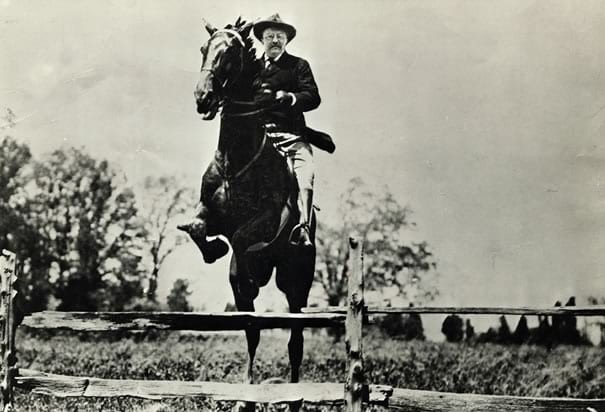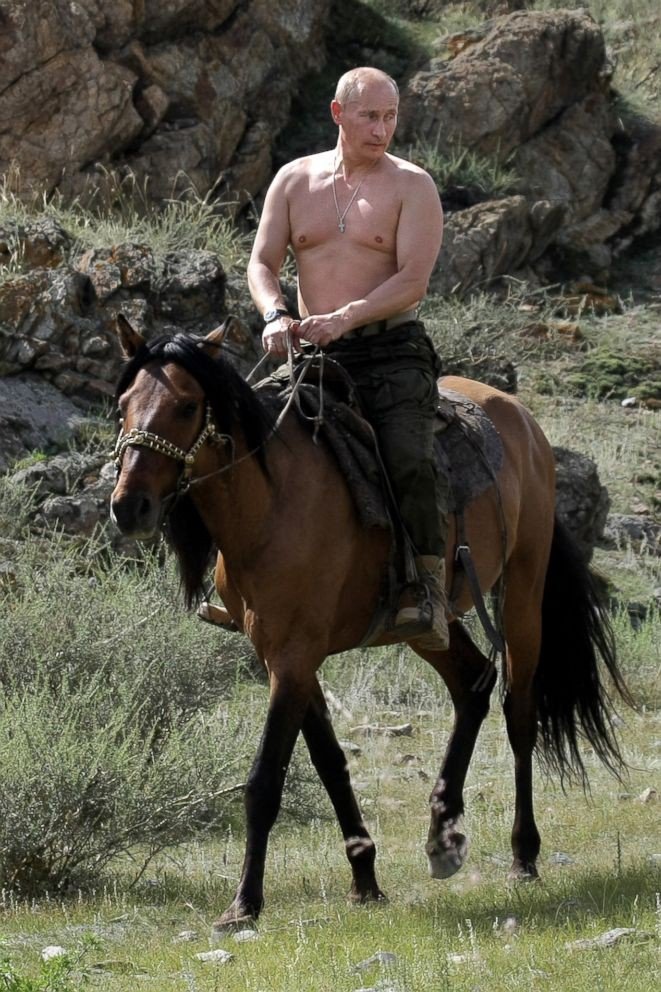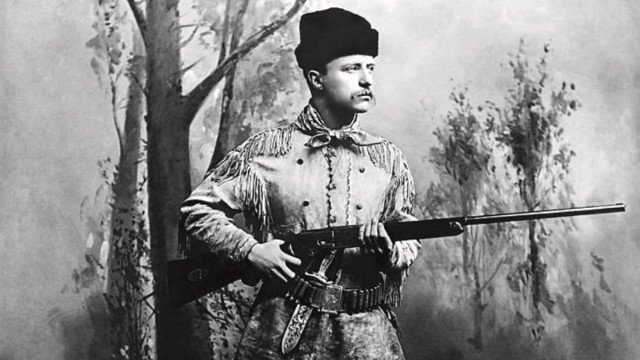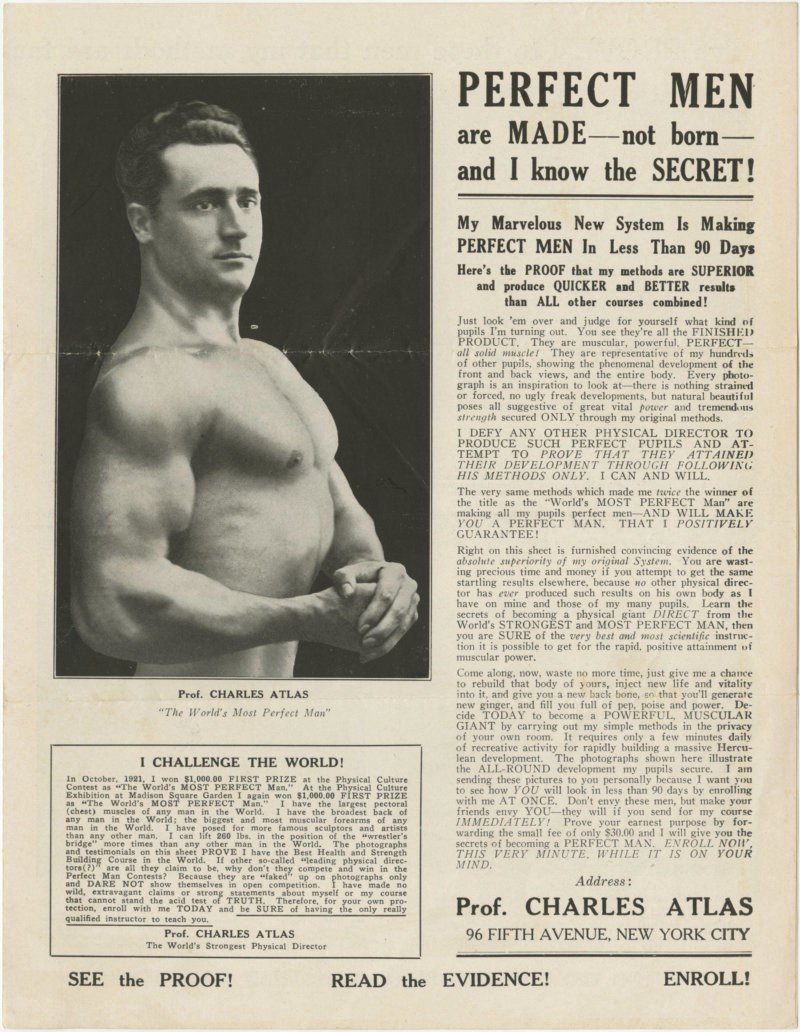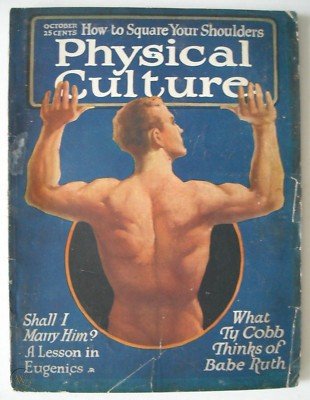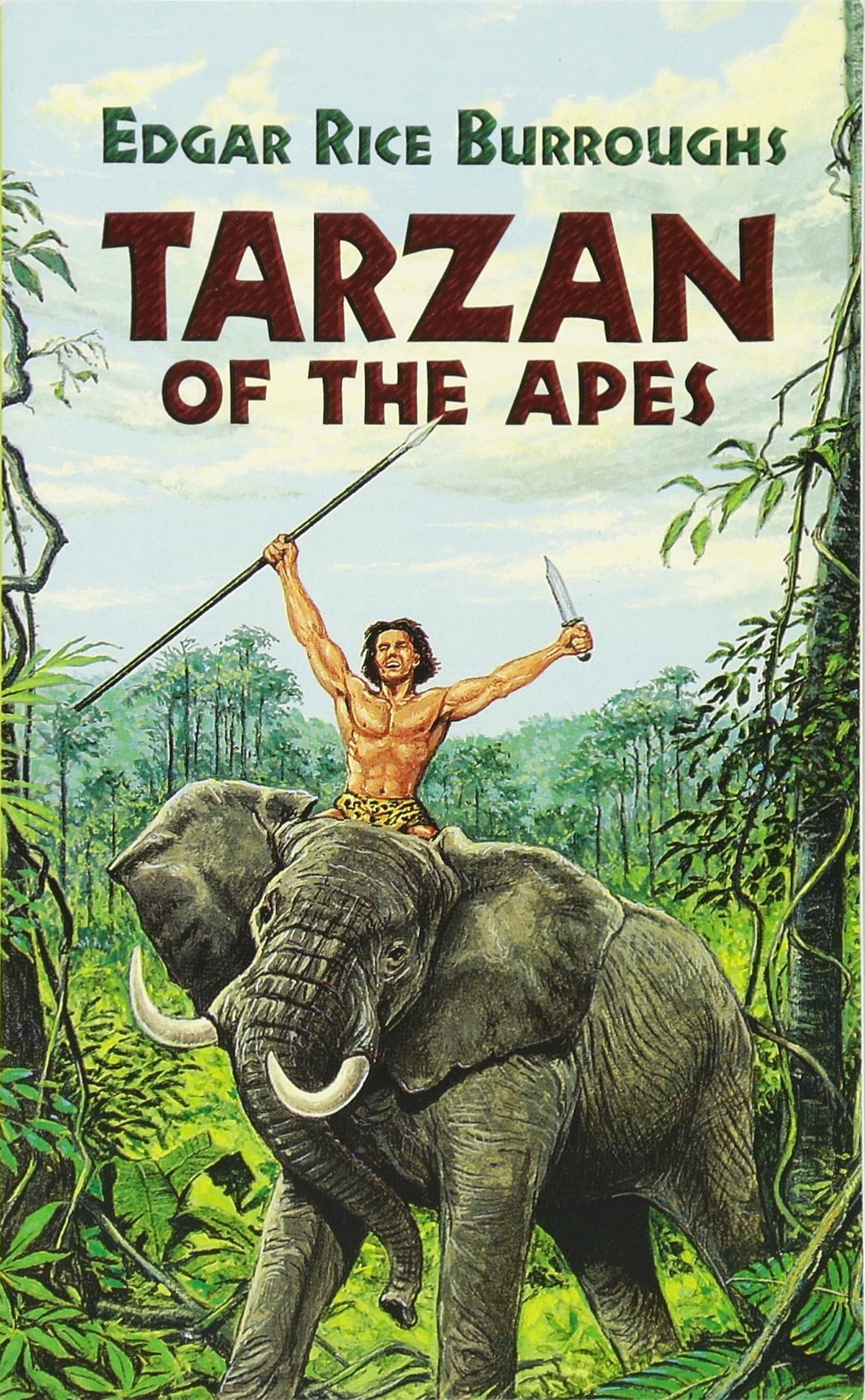Teddy Roosevelt and the End of Men
Last month Fox News presenter Tucker Carlson released a TV series called The End of Men, warning that American men were becoming effete, flabby and sterile. Civilization is descending into chaos, the series suggests, but that’s OK, because ‘hard times produce strong men’. It also featured a man tanning his testicles to the tune of Thus Spake Zarathustra (you can watch the trailer here).
With that Nietzschean image in mind, now seems like a good time to tell the story of President Theodore Roosevelt and his cult of manliness. Teddy Roosevelt preached a life-philosophy of vigour, and embodied this in his own romantic life. His words and deeds made him an icon to the online ‘manosphere’. Indeed, the popular website ‘Art of Manliness’ sells inspirational posters of him, and calls him ‘the patron saint of manliness’.
And yet there is a darker side to his life-philosophy. It included Social Darwinian attitudes that might makes right, only the strong deserve to survive, there are fitter and less fit races, and the white race has a right to conquer other races, while itself needing to be strengthened through eugenics. It’s a story that helps us explore some of the ways that wellness, men’s fitness, the human potential movement and ecological conservation can lead to ‘spiritual eugenics’.
Theodore Roosevelt was born in 1858 into the closest thing the US had to an aristocracy. Both sides of his family arrived in the US from Europe in the mid-17th century, and every family member since then was born in Manhattan. Teddy was proud of his genetic stock, but he himself was a sickly child with bad asthma. His father encouraged the boy to toughen up:
Theodore [his father said] you have the mind but you have not the body, and without the help of the body the mind cannot go as far as it should. I am giving you the tools, but it is up to you to make your body.
‘I will make my body’, the young lad is said to have replied. [Edmund Morris, The Rise of Theodore Roosevelt, p.32]
The young Theodore put himself through a regimen of weight-lifting, swimming, wrestling, riding and hill-climbing. Through sheer force of will, he trained himself to be unusually energetic and hardy. Fellow students at Harvard recount seeing him running everywhere, leaping up stairs, clambering up hills, and competing at boxing and wrestling.
A young Teddy in between wrestling bouts
After Harvard, he was elected as a member of the New York Assembly. But then tragedy struck — his wife Alice died after giving birth to their first child, and his mother happened to die of typhus on the same day. The shock of these deaths almost drove Roosevelt mad. He survived by, firstly, completely eradicating the memory of Alice from his conscious mind, never mentioning her name after her funeral. And, secondly, he sought to exorcise his demons through strenuous exercise.
Theodore (or ‘TR’ as he came to be known), left the East coast and moved to Dakota, where he ran a cattle ranch. He threw himself into the life of a rancher, sometimes spending over 24 hours in the saddle. He also hunted elk and bear, and volunteered as a deputy sheriff. He wrote to his sister that he found ‘enough excitement and fatigue to prevent over much thought, and moreover I have been able to sleep at night’. [quoted in William Hazlegrove, Forging a President]
He became a poster boy for the ‘West cure’, a treatment for sickly or nervous men pioneered by the physician Dr Silas Mitchell. For nervous women, Dr Mitchell advised ‘the rest cure’ (i.e staying in bed for months) but for nervous men Mitchel recommended months of manly activity in the Wild West. It was a remedy that worked for the author Owen Wister, who Dr Mitchell sent to a Wyoming ranch in 1885 to recover from nervous ailments. Wister would subsequently invent the Western as a genre with his 1902 novel, The Virginian, in which he celebrated the Wild West as a crucible for masculine virtues. TR called it ‘a remarkable novel’.
Roosevelt likewise thought that the decade he spent as a rancher in Dakota was the making of him. He told the Atlantic that it ‘had built him up and hardened him physically, and it had opened his eyes to the wealth of manly character among the plainsmen and cattlemen’. The East Coast fop became a grizzled outdoorsman (albeit with a bowie knife made at Tiffany’s). He wrote:
We knew toil and hardship and hunger and thirst; and we saw men die violent deaths as they worked among the horses and cattle, or fought in evil feuds with one another; but we felt the beat of hardy life in our veins, and ours was the glory of work and the joy of living.
[Autobiography p. 103]
He emerged from that decade as a strapping ‘bull moose’ of a man, a figure of ‘appalling energy’, in the words of one observer. He surged back into public life, and rose from New York police commissioner in 1894 to assistant secretary of the Navy in 1897. When the US went to war with Spain over Cuba in 1898, he resigned from political office and led a cavalry unit of cowboys and sports-stars, nicknamed the Rough Riders. His heroic exploits (which he recounted himself in his book Rough Riders) made him a national celebrity, and he was encouraged to run for the presidency in 1900. He ended up as vice-president to William McKinley. When McKinley was assassinated in 1901, TR became the youngest ever US president, aged just 42.
He seemed to embody the youthful energy of the United States in its ascendancy to world superpower. He drank 8 pints of coffee a day, ate 12 eggs for breakfast, read at least a book a day (sometimes three), wrote 150,000 letters in his lifetime. His eight years in the White House didn’t slow his exercise regime — he still rode, played tennis, took his cabinet skinny dipping in the icy river of Rock Creek Park, grappled sumo wrestlers in the White House, and boxed until one fight left him blind in one eye, upon which he switched to jujitsu. The Atlantic declared the president ‘the most vital man on the continent, if not on the planet, to-day’.
Like Putin, Roosevelt disseminated an image of Alpha masculinity
His energy and physical hardiness are almost ridiculous. When he was running for a third term as president in 1908, he was shot while giving a speech. He declared: ‘friends I shall ask you to be as quiet as possible. I don’t know if you fully understand that I have just been shot…The bullet is in me now, so that I cannot make a very long speech.’ He then spoke for more than an hour.
The strenuous life
He was a constant preacher of the value of a ‘strenuous life’ of energy, vigour and self-overcoming. He declared: ‘Life is a great adventure, and I want to say to you, accept it in such a spirit.’
His life-philosophy reminds me of William James, who taught him at Harvard, and who also overcame a tendency to depression by hurling himself into activity. James was an early champion of what became the human potential movement. He popularized the idea that humans typically use a fraction of our potential, and should devote ourselves to expanding our energies and powers. Contemporaries of TR saw him as an embodiment of this philosophy. An author in The American Magazine wrote in 1908:
Mr. James… points out the extraordinary accomplishments of men who have learned the art of ‘energizing,’ as he calls it, to the limit of their deepest capacities … It struck me at once that Roosevelt, more than any man I ever knew, is ‘energizing’ to the extent of his capacities.
James suggested we can conquer our fears by acting as if we’re not afraid. Roosevelt arrived at the same theory in his time in the Wild West. He wrote:
There were all kinds of things I was afraid of at first, ranging from grizzly bears to ‘mean’ horses and gun-fighters; but by acting as if I was not afraid I gradually ceased to be afraid. [Autobiography, chapter 2: The Vigor of Life]
Both James and Roosevelt were interested in ‘bodily vigor as a method of getting that vigor of soul without which vigor of the body counts for nothing’ (in Roosevelt’s words). More profoundly, both had a sense that the cosmic fate of humanity is somewhat mysterious, but we should act ‘as if’ what we do matters. This belief will then become a self-fulfilling prophecy, leading to a good life.
TR’s energetic deeds and sermons of uplift are still inspiring today, and his soundbites often feature in self-improvement, fitness and leadership training courses, particularly his famous ‘man in the arena’ speech of 1910:
It is not the critic who counts; not the man who points out how the strong man stumbles or where the doer of deeds could have done them better. The credit belongs to the man who is actually in the arena, whose face is marred by dust and sweat and blood; who strives valiantly; who errs, who comes short again and again, because there is no effort without error and shortcoming; but who does actually strive to do the deeds…
The joy of violence
But there is a darker side to this great president: his bloodlust. TR believed hunting was the perfect arena for the exercise of manliness. He set up a dinner club for his hunting friends, the Boone and Crockett Club, in 1887, ‘to promote manly sport with a rifle’. In one African safari, his party killed 11,000 animals — TR and his son alone shot 512 animals, as his scoresheet shows.
The joy of killing animals extended into the joy of killing humans. He describes shooting a Spanish soldier in the Spanish-American war and how he doubled up ‘neatly as a jack-rabbit’. His regiment took part in the battle for San Juan Hill, a particularly bloody battle which he described as ‘the great day of my life’.
His celebration of bloodshed and violence merged with a late-19th-century Social Darwinian worldview. Historian David H. Burton writes: ‘Few public men of his time were as ripe with evolutionary thought, or appeared more strikingly Darwinist, than did Theodore Roosevelt’. He had his own brand of evolutionary theory, which owed more to Lamarck than Darwin. He believed that struggle produced character:
Nothing in this world is worth having or worth doing unless it means effort, pain and difficulty…I have never in my life envied a human being who led an easy life; I have envied a great many people who led difficult lives and led them well. [Speech in Des Moines, 1910]
Struggle and violence sort the fit from the unfit, the productive from the ‘cumberers of the earth’ (one of his oft-repeated phrases). He’d seen this process at work among the cowboys of the Dakota Plains, where ‘the unfit are weeded out by a very rapid process of natural selection’. His embrace of natural selection sometimes approached the Nazi idea that some lives are ‘unworthy of life’. TR declared: ‘only those are fit to live who are not afraid to die’. He also once said that men who fear war, or women who fear motherhood, ‘tremble on the brink of doom; and well it is that they should vanish from the earth’. And he even said of his own children, ‘I would rather one of them die than have them grow up as weaklings’.
This rather brutal philosophy reminded contemporaries of Nietzsche. The columnist HL Mencken, who did much to popularize Nietzsche in the US in the 1900s, wrote: ‘in all things fundamental the Rooseveltian philosophy and the Nietzschean philosophy are identical’, although we don’t have any evidence that Roosevelt read Nietzsche.
TR was, in fact, much more of a racist than Nietzsche, unabashadly so. He had imbibed a racial vision of history at Harvard and Colombia law school, where his teachers taught the supremacy of the Teutonic race, and he came to see ‘the spread of the English-speaking peoples over the world’s waste spaces’ as ‘not only the most striking feature in the world’s history, but also the event of all others most far-reaching in its effects and its importance’. [The Winning of the West, p.15]
In The Winning of the West, published in 1889, he traced the expansion of the Teutonic race, ‘the stalwart sons of Odin’, throughout Europe and now across the United States. His time among the cowboys and huntsmen of the West had convinced him of the ‘frontier thesis’ — the white American race had been forged into a master-race through its bloody expansion westwards:
Our country has been populated by pioneers, and therefore it has more energy, more enterprise, more expansive power than any other in the wide world’ [Speech at Minnesota state fair, 1901]
This sort of racial thinking was not at all unusual for his time. In the late-19th century, it was very common to see history and politics through the prism of race. One found such racial-historical thinking in Germany, as we’ll see, but also in Britain, France, Japan, India, Russia, Mexico, and elsewhere. Each country had its racial prophets, who preached the unique fitness of their particular race and their manifest destiny to dominate the rest of the world. TR was a cheerleader for the white American race.
American Progress by John Gast, 1872
Naturally, the geographical expansion of one race led to violent clashes with other races — this was inevitable and desirable. The bloodier the clash, the better, as this would sharpen the manly virtues of the white American race. He thought the ‘’conquest and settlement by the whites of the Indian lands were necessary to the greatness of the race and to the well-being of civilized mankind.’ Either the weaker races submit and assimilate, or they would die out. This was TR’s view of native Americans. He once said in a speech:
I don’t go so far as to think that the only good Indians are the dead Indians, but I believe nine out of every 10 are. And I shouldn’t like to inquire too closely into the case of the tenth. [‘Ranch Life in the West’, January 1886 speech in New York]
Roosevelt was the first president to invite an African-American to dine at the White House, but he also said that African-Americans would not be the intellectual equal of white men ‘for many thousand years’. He told Owen Wister: ‘Now as to the negroes! I entirely agree with you that as a race and in the mass they are altogether inferior to the whites’.
When the facts didn’t fit his white supremacist narrative, he edited the facts. He was a great promoter of boxing, until a black man (Jack Johnson) beat a white man to win the heavyweight boxing championship in 1910, after which Roosevelt moved to ban prize-fighting.
The Passing of the Great Race
This, then, was his weltanschaang, his life-philosophy. The problem, to his mind, was that the US was becoming over-civilized. The wildlife and landscape that he loved was becoming over-farmed, over-logged, over-hunted and over-populated. And the white American race was in danger of degenerating through luxury and ease. Every previous empire had fallen because ‘the average citizen had lost the fighting edge’. In a letter to the psychologist G Stanley Hall, he wrote:
Oversentimentality, over-softness, in fact washiness and mushiness are the great dangers of this age and of this people unless we keep the barbarian virtues, gaining the civilized ones will be of little avail. …I feel we cannot too strongly insist upon the need for the rough, manly virtues. A nation that cannot fight is not worth its salt. [Roosevelt’s Letters and Speeches, p.183]
In addition, the white race faced the threat of other races outbreeding them. The Australian historian Charles Henry Pearson had warned that the ‘black, red, and yellow nations’ will ‘threaten the dominance of the higher peoples’, as Roosevelt put it in a review of Pearson’s work in 1894.
Roosevelt’s friend and fellow Boone and Crockett club member, Madison Grant, sounded an even more ominous note in his 1916 best-seller, The Passing of the Great Race, in which he insisted that human civilization was entirely the work of the ‘Nordic race’, but this great race was now threatened by the lower races outbreeding, or even worse, interbreeding with the whites, creating ‘a population of race bastards’. TR commended the book for presenting ‘the facts our people most need to realize’. In his speeches and letters, Roosevelt often warned that white America was in danger of committing ‘race suicide’ through low birth rates (see Thomas Dyer, Theodore Roosevelt and the Idea of Race, chapter 7).
To save the Great White Race, TR preached imperialism abroad, and outdoor pursuits, eugenics and anti-immigration at home.
It was thanks to its extraordinary history of ‘race expansion’ that the white American race was so fit and hardy, so it was imperative that this race expansion should continue. In his famous speech on ‘the strenuous life’, given in 1899, TR urged the US to accept an imperialist role:
We cannot avoid the responsibilities that confront us in Hawaii, Cuba, Porto Rico, and the Philippines…. The timid man, the lazy man, the man who distrusts his country, the over-civilized man, who has lost the great fighting, masterful virtues, the ignorant man, and the man of dull mind, whose soul is incapable of feeling the mighty lift that thrills ‘stern men with empires in their brains’ — all these, of course, shrink from seeing the nation undertake its new duties…
TR saw it as the United States’ destiny to take over the ‘white man’s burden’ from the British empire (indeed, that phrase comes from a poem Rudyard Kipling wrote for the president). Roosevelt thought it was the duty of the strongest race to rule other races, until they were capable of self-rule. He also saw war as essential for maintaining the vigour of the white American race. Global politics was one long wrestling bout, and to the victor the spoils.
‘Rough, manly sports’
In domestic politics, meanwhile, he thought the best way to protect masculinity was to encourage the outdoor life. He was America’s greenest president, creating 150 national forests, 51 bird reserves, four national game preserves, and five national parks. During his presidency, Roosevelt protected approximately 230 million acres of public land. Meanwhile the Boone and Crockett Club that he founded campaigned to protect American species from extinction, with Madison Grant working tirelessly to protect the grizzly bear, the elk, the bison and the Great Redwood tree. A central aim of this pioneering conservation was to preserve an arena for manly exertion.
TR promoted other ‘rough, manly sports’ as essential to the preservation of American virility. During his presidency, there was a movement to ban American football, because so many players died or were seriously injured each season. TR intervened to save the game. He also introduced a PT test into the US Armed Forces, insisting every would-be recruit prove their fitness by either walking 50 miles, riding 90 miles on horseback or biking 100 miles over three days.
Finally, TR supported eugenics as a means to keep the white American race strong and vigorous. Every species of livestock and wildlife needed to be managed to be kept in good health, with the weakest specimens culled or otherwise prevented from breeding. It was the same with the human species. They also were part of the livestock of the nation, to be managed without sentimentality.
TR wrote to Charles Davenport, the leading promoter of eugenics in the US:
It is really extraordinary that our people refuse to apply to human beings such elementary knowledge as every successful farmer is obliged to apply to his own stock breeding…. Some day we will realize that the prime duty, the inescapable duty of the good citizen of the right type is to leave his or her blood behind him in the world! and that we have no business to permit the perpetuation of citizens of the wrong type.
He often encouraged white Americans to resist ‘race suicide’ by breeding more, insisting (like Tucker Carlson) that ‘the greatest of all curses is the curse of sterility’, and that America depended on ‘good fighters and good breeders’.
He also supported the sterilization of the unfit — though to be fair to him, he did not ever do so publicly, unlike his friend Madison Grant, who wrote in The Passing of the Great Race:
Man has the choice of two methods of race improvement. He can breed from the best or he can eliminate the worst by segregation or sterilization… The laws of nature require the obliteration of the unfit and human life is valuable only when it is of use to the community or race. [Passing of the Great Race, p.40]
During TR’s presidency, Indiana became the first US state to pass a law allowing for the sterilization of the ‘unfit’ (in 1907) and 30 other states would follow suit in the years to come. Around 70,000 Americans were deemed unfit and forcibly sterilized between 1907 and 1970.
Eugenics became far more popular in the US than it ever was in UK. It was often promoted by champions of rugged masculinity, like Edgar Rice Burroughs, creator of the Tarzan novels. Tarzan was a eugenic hero, designed to prove that you could take a British aristocrat and put him anywhere and he would naturally rise to become ‘lord of the jungle’ (Burroughs would later suggest the US should sterilize anyone deemed unfit). Jack London, author of The Call of the Wild, was another promoter of rugged masculinity, and also an Anglo-Saxon supremacist who thought racial struggle and even genocide was normal and inevitable. Charles Atlas, the guru of body-building, declared in 1936: ‘This is essentially the age of survival of the fittest’ and argued that physical training would help create ‘a perfect race’. Physical culture and body-building magazines from 1900 to 1940 often featured articles promoting eugenics.
Eugenics was often promoted by champions of rugged masculinity, like Charles Atlas, Jack London, Edgar Rice Burroughs, and Physical Culture magazine
Right from the start, the American eugenics movement took on a much more racist hue than it did in the UK. Madison Grant and other leading eugenicists were white supremacists, as was Roosevelt. American eugenicists tried to prove scientifically that the white / Teutonic / Nordic / Aryan race was the fittest in mind, body and soul, while other races were peopled by intellectually and morally inferior ‘Under-Men’.
To preserve the purity of the white / Nordic / Teutonic / Aryan race, American eugenicists argued, the unfit should be sterilized (and a high proportion of the American women sterilized were non-white); the races should be segregated and forbidden from inter-breeding; and the country’s borders should be closed to immigrants. The white race needed to be protected from invasive species.
This, by the way, is one of the paradoxes of racist eugenics which we’ll also see in Nazi Germany. On the one hand, the white / Aryan / Nordic / Teutonic race is the fittest and will naturally rise to supremacy. On the other hand, it is fragile and threatened with extinction by other races, so it requires state intervention to protect it.
In the years after Teddy’s death, Madison Grant successfully campaigned to lower immigration to the US, particularly via the Immigration Restriction Act of 1924. This Act was passed with the help thanks to a eugenic study by Carl Brigham, a psychologist at Princeton who developed the IQ test. Brigham claimed his IQ tests proved that the ‘Nordic race’ was the most intelligent, while other races showed high rates of inherited imbecility, and thus should be kept out of the US. But in fact, Brigham’s tests scored immigrants’ IQ with questions like:
Bud Fisher is famous as an — actor — author — baseball player — comic artist
It was no surprise that new arrivals to the United States should fail to know who Bud Fisher was. Nonetheless, Congress was persuaded by Brigham’s study, and Grant exulted ‘we have closed the doors just in time to prevent our Nordic population being overrun by the lower races’. This sort of racist eugenics would prove a great inspiration to Nazi Germany, as we’ll see in the next chapter.
Theodore Roosevelt died in 1919, striving to the last breath. He is celebrated as one of the greatest American presidents, and his face is carved into Mount Rushmore alongside Lincoln, Washington and Jefferson. One particularly offensive statue of TR lording it over other races was removed in 2022, but on the whole, like Churchill, he preserves his place in the nation’s heart.
In this chapter, we’ve examined his life-philosophy of vigour and strenuous endeavour. In many ways, it’s an attractive and inspiring philosophy. When wondering if I can be bothered to go to the gym, I sometimes say ‘what would Teddy do?’ and immediately leap into action. But we have seen the danger of this life-philosophy morphing into a celebration of violence, war, imperialism, racial supremacy, and a eugenic intolerance for those deemed ‘unfit’. William James himself saw these shortcomings in TR’s worldview, for all the similarities to his own. After Roosevelt’s speech on the strenuous life in 1899, James wrote:
Although in middle life …he is still mentally in the Sturm und Drang period of early adolescence, treats human affairs…from the sole point of view of the organic excitement and difficulty they may bring, gushes over war as the ideal condition of human society, for the manly strenuousness which it involves, and treats peace as a condition of blubberlike and swollen ignobility, fit only for huckstering weaklings…[Quoted in this article by Patrick K. Dooley]
We still see Social Darwinian attitudes in men’s health, martial arts and fitness culture, where events are called things like Survival of the Fittest, or Only the Strong Survive. During the pandemic, gyms, fitness centres and martial arts communities were hot-beds of anti-lockdown, anti-mask and anti-vax sentiment. The view of the ‘alpha men’ (as one anti-vax group called itself) was: don’t wear masks, don’t get vaccinated, let the strong survive through their natural immunity, and let nature take its course. Not a very attractive way of thinking.





